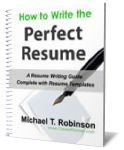"Electronic Drafter"
Job Description - Part 2 - Typical Daily Activities
Part 1
Duties / Tasks
Part 2
Activities
Part 3
Skills
Part 4
Abilities
Part 5
Knowledge
Job Activities for: "Electronic Drafter"
1) Drafting, Laying Out, and Specifying Technical Devices, Parts, and Equipment -- Providing documentation, detailed instructions, drawings, or specifications to tell others about how devices, parts, equipment, or structures are to be fabricated, constructed, assembled, modified, maintained, or used.
2) Getting Information -- Observing, receiving, and otherwise obtaining information from all relevant sources.
3) Processing Information -- Compiling, coding, categorizing, calculating, tabulating, auditing, or verifying information or data.
4) Analyzing Data or Information -- Identifying the underlying principles, reasons, or facts of information by breaking down information or data into separate parts.
5) Evaluating Information to Determine Compliance with Standards -- Using relevant information and individual judgment to determine whether events or processes comply with laws, regulations, or standards.
6) Inspecting Equipment, Structures, or Material -- Inspecting equipment, structures, or materials to identify the cause of errors or other problems or defects.
7) Updating and Using Relevant Knowledge -- Keeping up-to-date technically and applying new knowledge to your job.
8) Identifying Objects, Actions, and Events -- Identifying information by categorizing, estimating, recognizing differences or similarities, and detecting changes in circumstances or events.
9) Interacting With Computers -- Using computers and computer systems (including hardware and software) to program, write software, set up functions, enter data, or process information.
| Thanks for visiting CareerPlanner.com | ||

|
1) Use Career Testing to find the perfect career 2) Is your resume getting you enough interviews? |
 |

|
Thanks for visiting CareerPlanner.com 1) Use Career Testing to find the perfect career 2) Is your resume getting you enough interviews? |
 |
10) Making Decisions and Solving Problems -- Analyzing information and evaluating results to choose the best solution and solve problems.
11) Estimating the Quantifiable Characteristics of Products, Events, or Information -- Estimating sizes, distances, and quantities; or determining time, costs, resources, or materials needed to perform a work activity.
Is being an "Electronic Drafter" your very best career choice?
Our Career Interest Test will show you which careers match your interests.
Our Free Personality Test will show you which careers match your personality and why.
12) Communicating with Supervisors, Peers, or Subordinates -- Providing information to supervisors, co-workers, and subordinates by telephone, in written form, e-mail, or in person.
13) Coordinating the Work and Activities of Others -- Getting members of a group to work together to accomplish tasks.
14) Guiding, Directing, and Motivating Subordinates -- Providing guidance and direction to subordinates, including setting performance standards and monitoring performance.
15) Documenting/Recording Information -- Entering, transcribing, recording, storing, or maintaining information in written or electronic/magnetic form.
16) Handling and Moving Objects -- Using hands and arms in handling, installing, positioning, and moving materials, and manipulating things.
17) Monitor Processes, Materials, or Surroundings -- Monitoring and reviewing information from materials, events, or the environment, to detect or assess problems.
18) Thinking Creatively -- Developing, designing, or creating new applications, ideas, relationships, systems, or products, including artistic contributions.
Job Description for "Electronic Drafter" continued here...
Part 1
Duties / Tasks
Part 2
Activities
Part 3
Skills
Part 4
Abilities
Part 5
Knowledge
"Electronic Drafter" Holland / RIASEC Career Code: R-C-I SOC: 17-3012.01
Click here for "Electronic Drafter" Jobs
See the Future Outlook and Educational Requirements for "Electronic Drafter"
Our Most Popular Products





